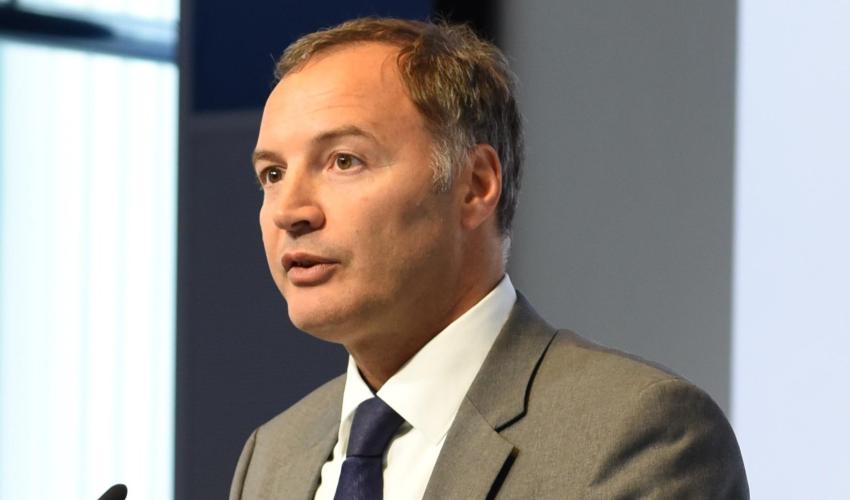
Working with a View to the Long Term
THE FIVEYEAR TERMS AT AN INSTITUTION LIKE THE EUROPEAN COMMISSION PROTECT AGAINST THE VARIABILITY OF NATIONAL CALENDARS, SAYS ALUMNUS GABRIELE GIUDICE, HEAD OF UNIT IN THE ECONOMIES DIVISION OF THE MEMBER STATES AT THE COMMISSION. HIS WORK IS ENGAGING, WHICH ALLOWS HIM TO GET IN CLOSE TOUCH WITH THE PROGRESS OF ECONOMIC AND POLITICAL INTEGRATIONIt began with a thesis on the European Structural Funds, then additional training at ISPI with a focus on the budding Maastricht Treaty, followed by an internship at a Directorate-General of the European Commission. The process of building the EU, in short, is in the DNA of Gabriele Giudice’s professional development. As a young economist in Brussels, he was among the witnesses of the introduction of the Euro and today he is Deputy Director and Head of Unit in the Economies Division of the Member States at the European Commission.
"In my current position, among other projects I follow the Next Generation EU plan, with economic and fiscal surveillance tasks and the program for implementing NRRP aid in several countries," summarizes Giudice. "In the past, I have been a negotiator for aid to Latvia and Greece, with reform programs that have helped these countries join or stay in the Euro despite the severe financial crises they faced. Today aid is for the resilience and recovery plans for Spain and Croatia, which constitute two records in size, one in absolute terms and the other in relation to the country's GDP." It is both a technical and a negotiating function, which requires extended expertise, ranging over quite different areas of a country's economy. It touches on issues of social policy, employment, pensions, health, sectors such as energy or transport, but also institutional reforms such as, for example, that of public administration or justice. "For this reason, it is a task that can only be carried out in teams and in close contact with the member states, through the sharing of every decision and every change in the documents,” he specifies. "In this phase of applying National Recovery and Resilience Plans to individual countries, one can sense the breadth of the supranational institution that is the European Commission, which always looks to the long term. The Commission’s calendar works by five-year terms - at the moment we are already working on the mandate of the next Commission - thus remaining relatively protected from the variability of national political calendars. So you begin working knowing that you will have time to finish. The most engaging part of this activity, however, is seeing how it actually leads to greater integration of both European economies and institutions. NextGenEU, in particular, is an innovative tool whose importance is not assessed by one single measure, but by the new means it offers the EU to be in solidarity with states and citizens."
This is a comforting sign for the many important challenges that are looming on the horizon, starting with the new hypotheses of expanding to the Balkan countries. "I believe that before opening up to new expansions it is necessary to reflect on the mechanisms of unanimity in decisions that are written in the foundations of the EU and which now risk becoming a brake on development rather than a form of protection," observes the Bocconi Alumnus. "But there is another very important challenge, which is that of global competitiveness, an area in which we are not at an advantage. Europe, if only because of its small size compared to other continents, is no longer as representative of the world as it once was, nor does it have easy relations with all its interlocutors. Therefore, even the rules that were designed to preserve internal competition among businesses from different member states must now be reconsidered, to favor the competitiveness of the European system as a whole compared with the rest of the world."
by Pietro Masotti
Translated by Richard Greenslade
